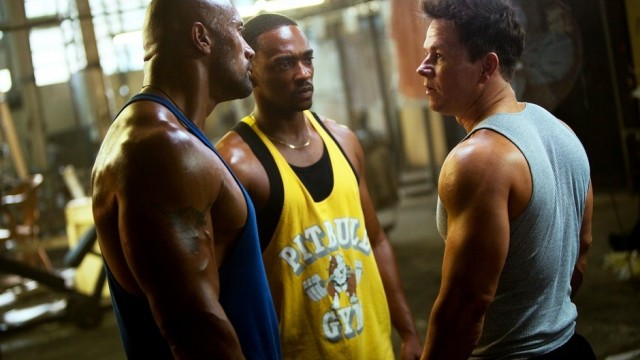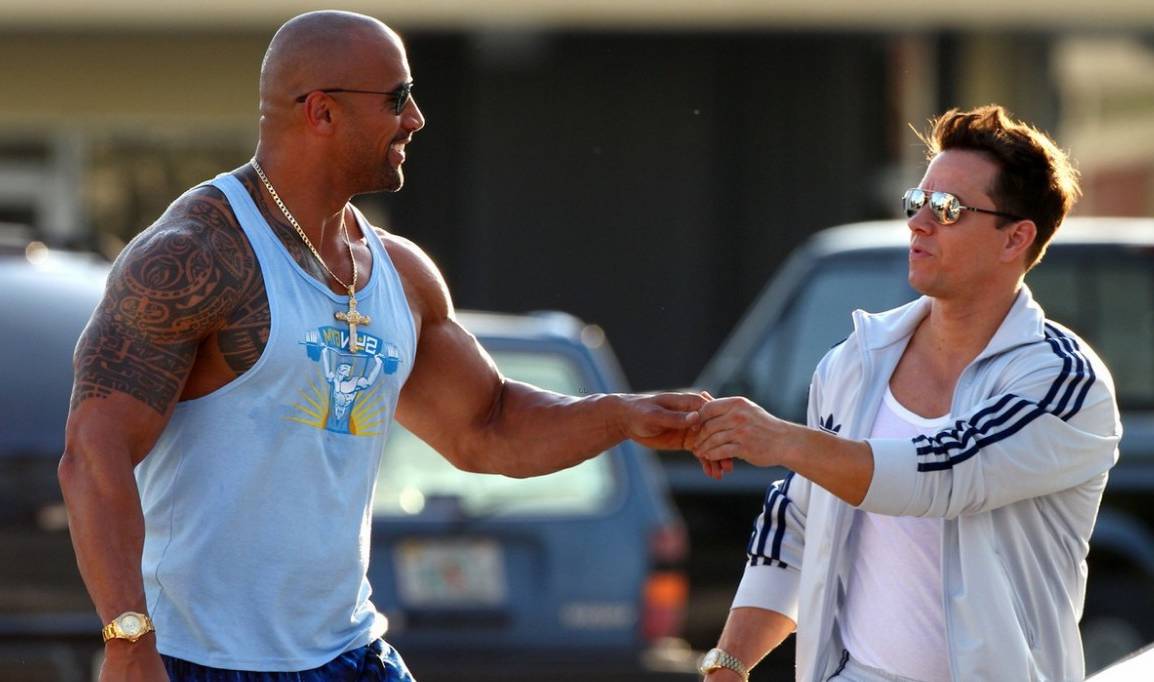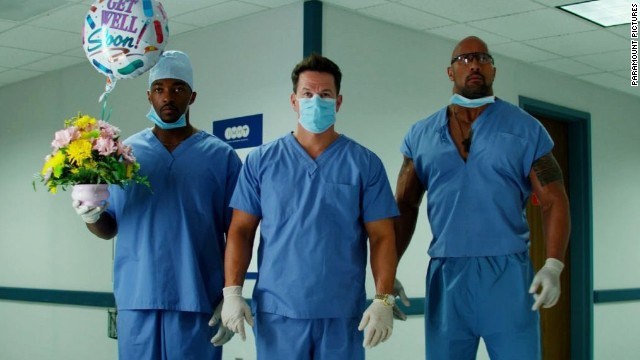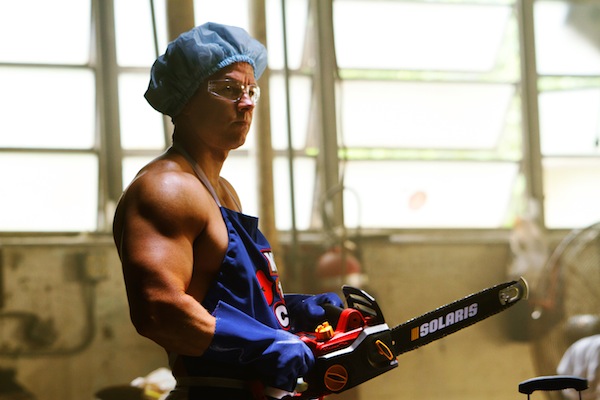|
Michael
Bay's Pain & Gain is an ugly film.
It's retraces a terrible case of kidnapping and torture, but
trivialises and
commercialises the crime by turning it into a comedy. The Transformers
director would argue he's satirising the American
Dream with this insane but true story of a bodybuilder who kidnapped a
client
and stole his entire lifestyle. In reality, this is third-rate
material. It is an
over-pumped imitation of Scarface but with Bay's
idiosyncrasies. It's
louder, dumber, crasser, and more offensive than the other two versions
and
cynical enough to pass its failings off as a reflection of its
characters, while
exhaustingly basking in the very same excesses it wants to criticise.
Hollywood
resurfaces the Scarface story when
America is in economic strife. The best Scarface
movie is the 1932 film by Howard Hawks and Richard Rosson.
Paul Muni's
gangster Tony, who rose through the ranks of the mob by eliminating his
enemies, reflected the greed of the Great Depression era. The American
economy
collapsed because of over-production, stagnant lower class wages,
consumer
excess and the fall of the stock market.

Scarface
was remade by Brian De Palma in 1983 to further comment on greed and
America's
new economic recession. President Ronald Reagan introduced
"Reaganomics"
including the "trickle-down" theory. Corporations were given large
tax cuts so the wealthy would earn more and therefore spend more on
investments. This was meant to increase jobs and salaries for the lower
class.
It was an economic disaster that only benefitted the wealthy. The gap
between
the rich and poor by 1989 was according to MSNBC the biggest since
1947.
Post-Global
Financial Crisis, Hollywood continues to see the bankability of Scarface. Another remake is due next
year. Despite being released now, Bay's film is adapted from a 1999
article
series in the Miami Times by Pete Collins. The film takes place between
October 1994 and June 1995, Mark Wahlberg plays Daniel Lugo, a personal
trainer
dissatisfied and jealous of his wealthy client Victor Kershaw (Tony
Shalhoub).

A
motivational seminar from Johnny Wu (Ken Jeong) encourages Daniel to
start
acting in life. He hires two men to help him kidnap Victor. The first
is fellow
trainer Adrian Doorbal (Anthony Mackie), who is being treated for
impotency by
Robin (Rebel Wilson). The second man is Paul Doyle (Dwayne 'The Rock'
Johnson),
who has done time, but is now sober and has found religion. After
bumbling
their way through the kidnapping, they torture Victor, forcing him to
sign over
his property. Also involved are Sorina (Bar Paly), an immigrant girl
Daniel has
told he is CIA, and Det. Ed DuBois (Ed Harris), a private investigator
who
comes out of retirement to pursue the group.
The
articles can be read online. It's surprising how much of the story is
actually
true. There are compromises, like certain characters erased and details
about
Daniel's life drastically changed. What's more dispiriting is the
flippant treatment
of this story and the tonal instability. The humour is broad, juvenile
and
unfunny, compounded by a mean-spiritedness that attacks people of all
shapes,
sizes, genders and ages. Some scenes, including the dismemberment of a
body, are
so grotesque that I struggled to continue watching.

An
extract from Collins' article describes the real Victor's torture: "Now
he
learned quickly what being a prisoner of Lugo was like. For two hours
he felt
the electric lash of the taser gun, the explosion of punches, the
pistol-whippings. The men took his all-weather lighter and burned him
on his
arms and chest." It's hard to see how any of these experienced actors,
none of whom are convincing, saw the funny side of this or the appeal
of their
characters. Isn't it time Rebel Wilson was given a role where she can
provide
more than just punch lines?
The
technical aspects remind us why Michael Bay is such an awful director.
The
actors are framed with titled camera shots for no particular reason and
the
frazzled pacing of the movie doesn't allow time for scenes to unfold.
There's
no feel for any tension. The sunshine, swimsuits and cars of Miami are
photographed
with high colour saturation and an adolescent perverseness so that the
film
resembles a pop music video when it should be a critique of capitalist
greed.
Catchy but obvious song choices like Gangster's Paradise by Coolio
compromise
the soundtrack.

If
the film is about a man who wants too much and blindly thinks he can
profit off
America by cutting corners, then inspiration wasn't too far away. The
excesses
of this nasty, repellent film are as hypocritical as they sound.
Michael Bay
should stop being a "do-er" and start being a "don't-er".
|